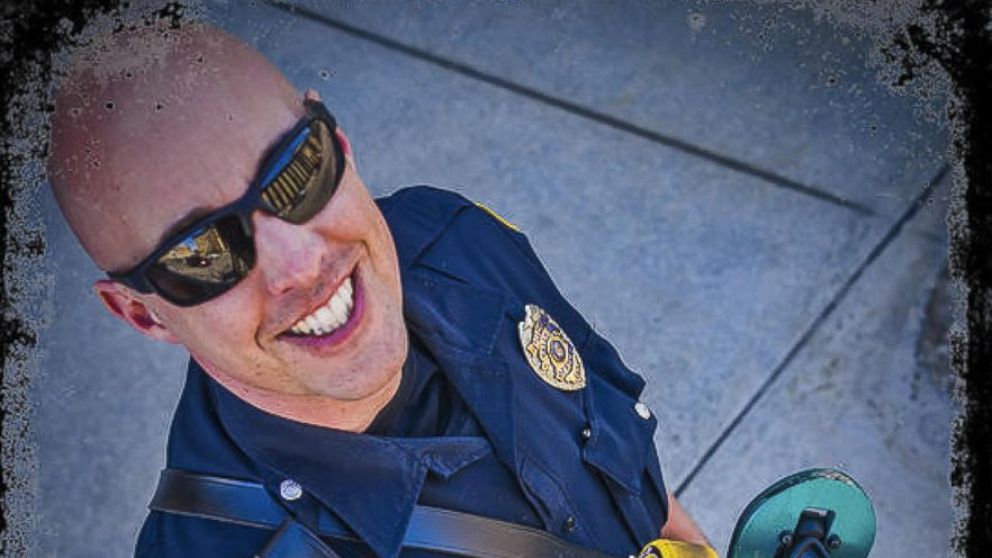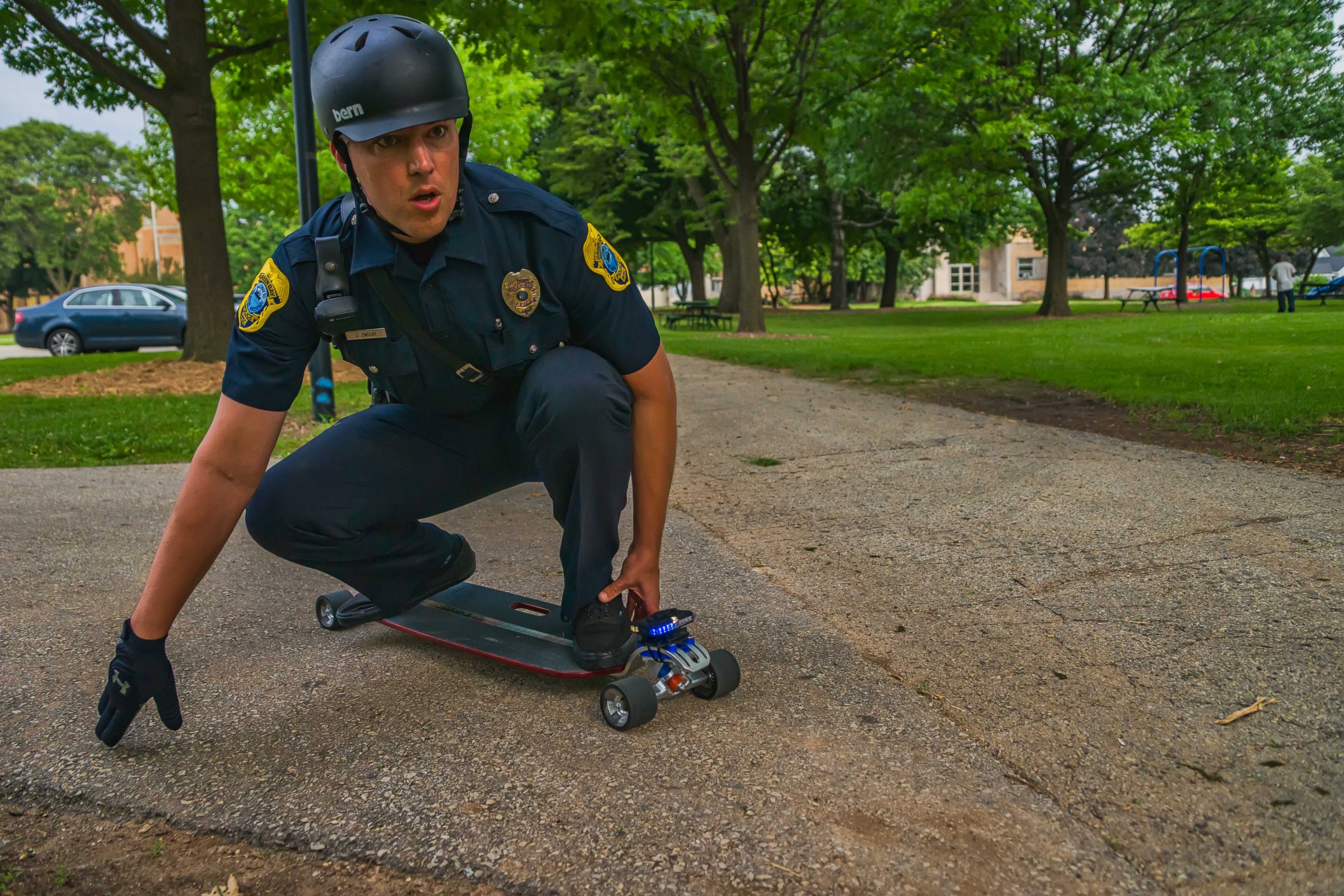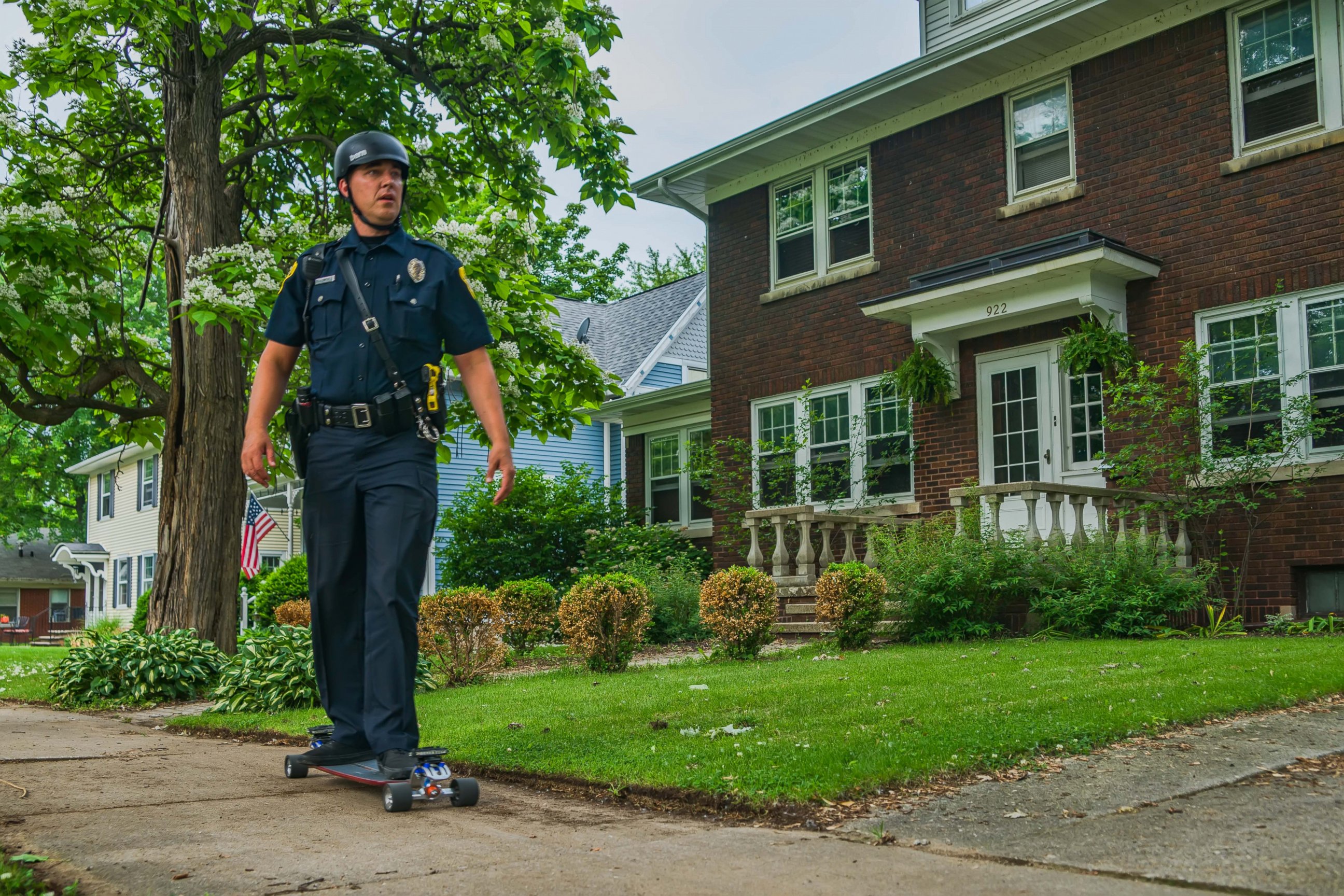Skateboard Cop Wants to Break Down Barriers in Green Bay
Joel Zwicky has led an intriguing life.

— -- Joel Zwicky has led an intriguing life.
For seven years, he was the lead vocalist and acoustic guitarist for the soft rock band Boom Candle, and then he went into photography for a while.
He changed tack 10 years ago, taking his experiences in the arts and his psychology degree and going into police work as a patrol officer with the Green Bay Police Department in Wisconsin.

A few months ago, he implemented an idea he’d been toying with for a few years: patrolling on his longboard.
Touching Reason Distraught Teen Now Sleeps Like a King
Kudos for Cop Who Buys Birthday Cake, Present, for Boy Whose Gift Was Stolen
Police Throw Mass. Autistic Boy Birthday Surprise After Mom's Plea
“I kind of had the idea like, two years ago, just because I like to skate and I was trying to figure out how I can do it more at work so that I can – you know, if you do what you love, you don’t work a day in your life,” he said in a Thursday night interview with ABC News.

At first, everybody thought he was joking and idea didn’t take off, but Zwicky, 40, said earlier this year when his department’s chief set a new initiative to find ways to engage more with the community, he floated the idea again.
“And I said, ‘You know chief, I had this crazy idea in the back of my head what would you do if I brought my board to work and started skating it?’ And he said, ‘Can’t hurt. Just don’t get hurt please,’ he goes. So that’s kind of how it started,” Zwicky recalled.
He started his unorthodox patrols in March. Every day, he loads the board into his patrol car, answering calls and patrolling the various neighborhoods in the city. When he breaks out the board – which has lights mounted on it – heads turn.

“Being in the squad car all day, it’s kind of like a barrier to the public and it can be intimidating to come up and talk to us … but when I go skating past them, even if it’s, ‘What the heck is that?’ or ‘What are you doing?’ ... then all of a sudden we’re both smiling and we can talk and they can tell me their concerns,” Zwicky said.
He added: “It’s really great at opening up doors as far as communication with people and beyond that it really, kind of, fits a niche that hasn’t been addressed in police work.”
Because the board is compact, Zwicky says, it allows him better access to certain areas that wouldn’t be easily patrolled with a squad car. Indeed, he said he performed his first traffic stop by skateboarding on a bike path.
“It was totally accidental … I saw headlights coming down the path at me and it was a motorbike and both of our jaws dropped. He’s like, ‘What are you?’ I’m like, ‘I bet you didn’t expect to see me here today,’” he said. “There’s no motorized vehicles [allowed] on the path so we just both agreed to have a laugh about it and he would get back on the road where he belonged.”
Zwicky has a passion for boarding and wants to use it to establish a rapport with skateboarders and challenge long-held stereotypes about boarders and law enforcement.
“They’re so persistent,” Zwicky said of skateboarders. “In their sport there isn’t a coach and there isn’t a time to show up for practice, but they put hours and hours in on this every day, falling down, getting hurt, getting back up, and the character that that sport builds has just been overshadowed by this stereotype of these kids being bad kids. You know, they’re absolutely to be admired.”
On his blog, Skateboardcop.com, Zwicky said he wants to see boarders get the same road rights as bicyclists and inline skaters.
“I think skateboarding needs a new narrative,” he said, adding that he wanted to show the skateboarding community “that the whole us-against-them thing is, you know, outdated, too.”
He hopes that other police departments across the country consider incorporating skateboards into their patrols if officers are interested.



